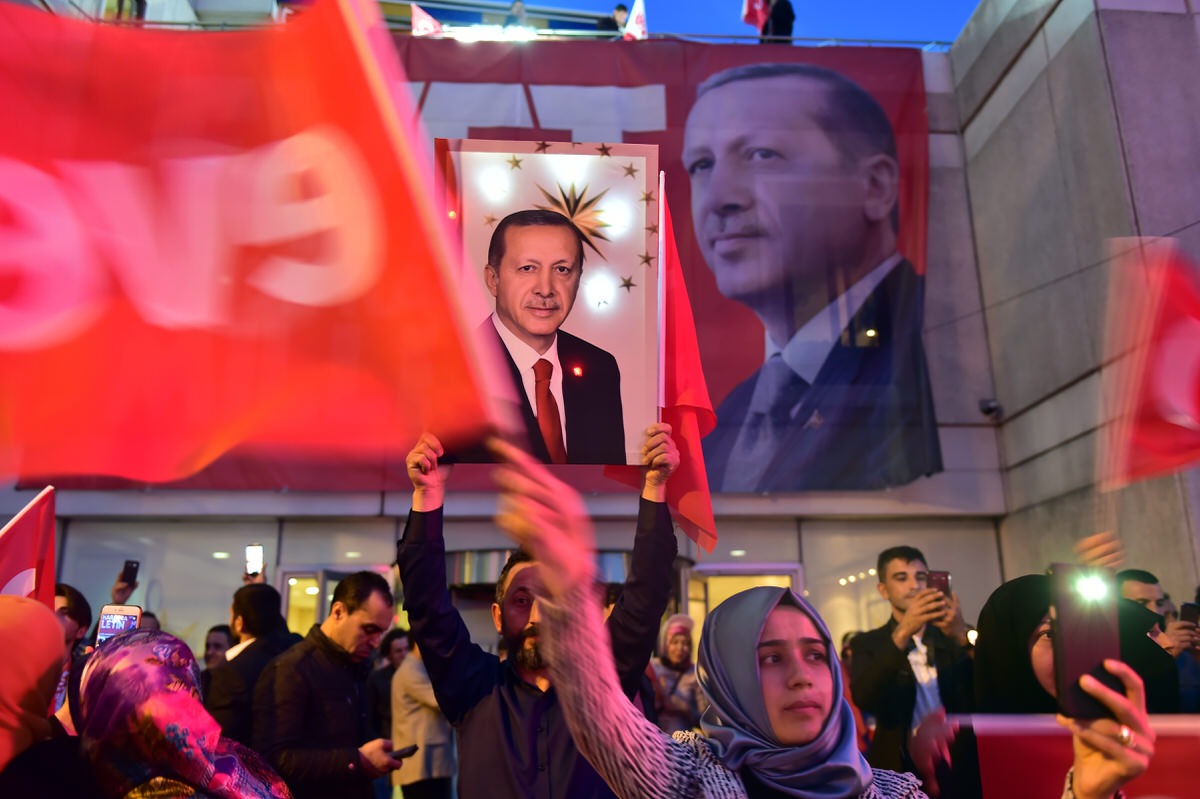When Turkey’s political elite square off next year in the country’s general election, one element of the democratic process is almost certain to be absent: political debates. The televised airing of ideas and differences, ubiquitous in many Western democracies, has not been a feature of Turkish politics since President Recep Tayyip Erdogan was first elected prime minister in 2002.
In Erdogan’s “New Turkey,” the lack of political debating has absolved leaders from working for people’s votes and disenfranchised an already sceptical electorate. Put another way, the longer politicians stay away from the lectern, the shallower Turkey’s democracy becomes.
The spectator sport known as political debating first appeared on Turkish television in 1983. At the time, millions were drawn to their screens to watch as politicians defined and defended party platforms. The prime-time tradition of watching public servants duel with words got so popular that it trickled down from national politics to the local level.
As elsewhere, debates have made (or destroyed) Turkish politicians’ careers. Erdogan himself rose to national prominence on the debate stage. In the 2002 campaign for prime minister, a prime-time debate on TV propelled the then-Istanbul Mayor and Justice and Development Party (AKP) chairman to the country’s highest office, as Erdogan bested the Republican People’s Party (CHP) Chairman Deniz Baykal.
In 2007 a debate sank the aspirations of AKP Vice-Chairman Dengir Mir Mehmet Firat, who resigned from his post two months after his 95-minute debate with CHP parliament member Kemal Kılıçdaroğlu. Kılıçdaroğlu, who was later made chairman of CHP after trouncing Ankara mayor Melih Gokcek in another debate, accused Firat of corruption. It was political theater at its most informative and entertaining.
Since then, it has been quiet at the podium. Despite several invitations from challengers, Erdogan, a skilled orator, has stayed away from the debate stage. Former editor-in-chief of Hurriyet Daily News—Murat Yetkin—says Erdogan even banned other AKP members from appearing in televised debates themselves. The prohibition on debates is yet another erosion of Turkey’s democratic freedoms and further evidence of Erdogan’s political consolidation.
The ban on politicians debating on screen is especially domineering in Turkey, where television is the main source of information and news. For instance, KONDA, an Istanbul-based polling company, found that 67 percent of Turks first learned about the 2016 coup attempt from television. Indeed, Turks spend most of their free time watching TV. A 2020 report from the TV Audience Research Company estimated that Turks spend four hours and 33 minutes a day watching television. Of course, not everyone is tuned into news 24/7, but the amount of time spent watching television demonstrates how central the small screen is in most households.
And yet news coverage in Turkey is decidedly partisan. Ilhan Tasci, the CHP party representative on Turkey’s broadcasting watchdog, the Radio and Television Supreme Council, exposed the fact that opposition parties get almost no airtime. During the 2018 election campaign, which ran from April 17 to May 6, public broadcaster Turkish Radio and Television Company gave no airtime to the Kurdish-linked People’s Democratic Party (HDP), three hours and four minutes to the CHP, and 36 hours to AKP.
Compounding these concerns, half of all eligible voters for the upcoming general election will have little or no memory of ever seeing a televised political debate. Members of Generation Z, some five million people born after 1997, 16 percent of the electorate, will cast their first vote in a national election next year, while Millennials, born after 1981, make up 33 percent.
The last time Turkey’s voters saw anything resembling a political debate was in 2019, a staid and stiff on-screen meeting between AKP’s Binali Yıldırım and CHP’s Ekrem Imamoglu campaigning to be the mayor of Istanbul. Neither man engaged directly with the other. There was no hard talk, no substance, nothing that would have influenced the outcome of the mayoral election.
Given this two-decade decline in Turkey’s debate scene and evidence from other countries that such events have little impact on election outcomes, it is worth asking whether the demise of Turkey’s on-screen political sparring even matters. Worth asking, but hardly worth answering.
Put simply, the disappearance of transparent political discourse has excluded entire generations of voters from the political process and prevented young people from fully grasping their rights and responsibilities as citizens. Millions of voters have come of age never witnessing a politician work for their vote or being publicly called out for their wrongdoings. Subconsciously, Turkey’s young voters have been trained not to expect politicians to deliver on their promises, or even to make them.
Turkey’s lack of political liyakat (competence) and the eradication of public accountability are perhaps the biggest shifts in the country’s political landscape since AKP came to power. Voters have grown accustomed to Turkish politicians avoiding public scrutiny or engaging with the opposition. Today in Turkey, politics are a black box.
Unfortunately, what that has produced is a monolithic narrative empowering a single opinion at the expense of many voices. Erdogan’s position on public debates is a key cause of this trend. As candidates get ready to do battle in next year’s general election, voters will need to cast their ballots based on what is said in public but, even more importantly, on what is not.
Alexandra de Cramer is a journalist based in Istanbul. She reported on the Arab Spring from Beirut as a Middle East correspondent for Milliyet newspaper. Her work ranges from current affairs to culture and has been featured in Monocle, Courier Magazine, Maison Française, and Istanbul Art News. This article first appeared in Arab Weekly.






0 Comments